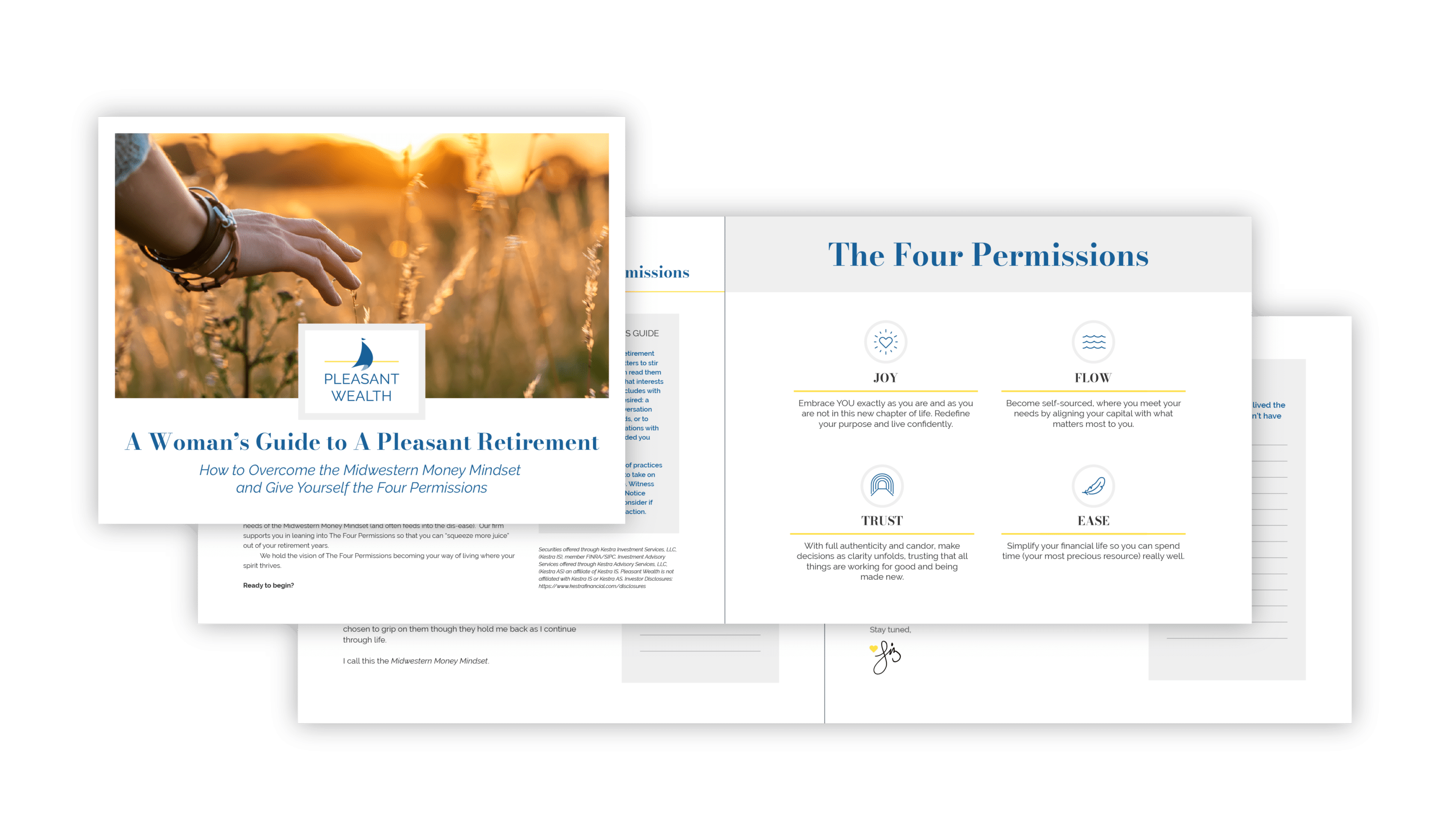Don’t go without downloading our free retirement guide!
A Woman’s Guide to a Pleasant Retirement
How to Overcome the Midwestern Money Mindset and Give Yourself the Four Permissions

Check the background of this firm on FINRA’s BrokerCheck →
You’ve heard that death and taxes are the only things certain in life. But when you inherit a retirement account from a parent, you must deal with both.
Inheritance involves emotional weight and financial complexity. It also may be a surprise windfall you hadn’t anticipated. Today, we’ll cover what you need to know when receiving an Inherited Retirement Account from your parents.
First, it’s essential to know what type of account you received. If your parent set up retirement savings through an employer, you may inherit a 401(k), a SEP IRA, a Simple IRA, a 403(b), or several other types of accounts. If they set up retirement savings on their own, you may inherit an Individual Retirement Account (IRA) or a Roth IRA. Each type of account has different rules and considerations. Inherited IRAs are the most common accounts our clients receive, and that’s what we’ll discuss in this post.
Unfortunately, it’s not as simple as receiving a check. First, you’ll need to open a new Inherited IRA in your name. You’ll need to gather a few documents: A recent statement for your parent’s retirement account, and a copy of their death certificate.
Once the account is open, you can transfer the funds from your parent’s IRA, traditional 401(k), or Simple IRA. The transfer is tax-free.
Generally, you can withdraw money at any time. Recent legislation requires you withdraw all funds from your inherited IRA before the end of the 10th year after your parent’s death. Withdrawals are taxable to you as income.
It’s important to understand how your parent invested the money inside their retirement account. If they owned an annuity, there may be substantial benefits to withdrawing the funds over several years instead of as a lump sum.
Withdrawals from Inherited IRAs are typically taxable as income. However, because the accounts need to be fully withdrawn within 10 years, a large inheritance might create new tax headaches. Time your withdrawals carefully to save thousands in taxes.
If you inherit a Roth IRA account, you still need to withdraw the funds within 10 years, but the withdrawals will be tax-free, as they are with your own Roth IRA.
If your parent was old enough that they were receiving required minimum distributions each year, you will be required to continue those distributions. The amount will be based on your life expectancy, so the older you are, the more you’ll need to withdraw each year.
If you are chronically ill or disabled, you don’t need to withdraw the IRA within 10 years. Instead, you can stretch the withdrawals out over a longer period.
These rules apply to IRAs you inherit from a non-spouse (parent). The rules are different if you inherit an IRA from a spouse. An advisor can help you understand additional options and make a smart choice.
Any money you inherit will have emotional weight. Inherited retirement money from a parent has additional tax burdens as well. It’s worth taking some time to:
The CERTIFIED FINANCIAL PLANNER™ professionals at Pleasant Wealth have helped hundreds of clients find clarity, confidence, and ease with their money. If you aren’t feeling that way about your inheritance, or if you just want a second opinion, reach out to us today.

Clinton Miller, CFP®, is an investment advisor & financial planner with an educational background in mathematics. He enjoys making tax planning relevant for clients so they can make confident money decisions.
He and his wife Aubrey are based in Canton, OH & have two sons. In his spare time, he enjoys fishing, chainsaw repair, & mucking around in the woods.